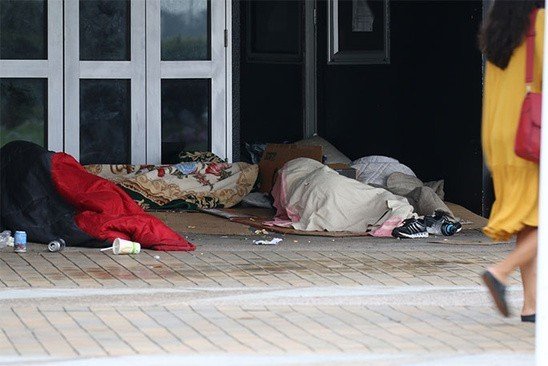Te Whakamārama Oranga
Local Government and public see homelessness as something to address by providing affordable homes. These people are seen as offensive, drug users and alcoholics, dole bludgers and lazy! Seen as a stain on our streets that need to be removed. But how far are your workers, family, friends and neighbours from this becoming a reality.
For context my wife and I have been walking alongside several homeless in Tauranga, we know them personally and over the years have become trusted members of their community.
Who are these people?
Most stories are similar, there was a difficult upbringing (perspective) and there was a trauma event. At this point the stories change through individual reaction to trauma, some turned to drugs and/or alcohol to cope, and it might surprise you that most don't use drugs and alcohol and have simply been trying to keep up with life in general.
From the 30 or so that we see at least weekly, there is a 50/50 split between Māori and non-Māori with non-Māori being more likely to take meth and Māori being more likely to be suffering a mental disorder.
How do they live?
Most suffer from mental distress from which there is no government support in NZ.
If you are completely “off the wall” there is assistance for you, however if you are incapable of basic interactions such as sorting rent payments or getting a bank account and you are not a danger to yourself or others, sadly, you are on your own.
They live in cars, tents and in makeshift shelters. At times due to theft, bartering or bullying they need to sleep in the open, which includes shop doorways.
Most receive a benefit and those who don't buy drugs or alcohol have money for clothing, food, hygiene products and vehicles.
In Tauranga, all rely on charities for free meals and hygiene products, showers, dentists, GP, nurses and optometrists offered by volunteers. Nationally there are Hauora that provide health services and referrals. Without these giving people, I’m unsure of how local government and the community would react.
What can we do?
They don't want pity, handouts or your advice. They want to be accepted as part of the community and given the opportunity to engage with you without judgement.
Keep in mind, not everyone is approachable especially if you make a “b” line to them... just raise your eyebrows and acknowledge them as people.
In Tauranga the biggest need is showers and a place to park vehicles near shops.
What does this have to do with Safety?
Let me tell you a story about a man named Bob. (true story, but name is changed)
Bob is married with one child, renting a house and a truck driver earning a good living. One day Bob’s son was in an accident and sadly he died. Bob and his wife struggled, but Bob needed to go back to work.
Bob couldn't cope, his wife tried to help him, but it wasn't working. Bob kept his problems from his boss because he couldn't keep up at work. The answer for Bob was methamphetamine. Bob worked as hard as he could, but the meth takes all the money. Bob’s wife left him, and Bob was homeless, his work performance declined, and he lost his job, and to top it off Bob’s teeth rotted, and he became a diabetic.
This is where I met Bob, sleeping in his car hypoglycemic because he had no food. Abusive, aggressive and stealing things... it had been 18 months since the death of his son.
As Health & Safety professionals we keep people from harm while they're at work, but what about outside of work?
Health and Safety doesn't end when you “clock out”
It is sad that Bobs relationship with his employer wasn't healthy, he may have received support sooner. I encourage you to get to know your people and let them know you, share aspirations, trials and failures so that when things don't go as planned you have an established foundation of non-judgmental support, a Whānau. This one initiative could have changed this outcome and in some instances, prevent a fatality.
If you would like help to better understand this principle, contact TRMA and read Haumaru Tāngata. Also, if you would like to, please help our homeless Whānau.
Twelve months on and Bob now rents a room, he has his diabetes under control, is drug and alcohol free, is seeking spiritual wellbeing, has a new set of teeth, new glasses and will start looking for driving work when he regains feeling in his feet.
Ngā mihi
WAYNE KOHI
TRMA TRUSTEE


